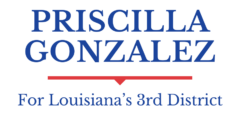The Paycheck Fairness Act (H.R. 7) aims to address wage discrimination and close the gender pay gap by strengthening the Equal Pay Act of 1963. The bill includes several key provisions:
- Enhanced Protections Against Wage Discrimination:
- Employer Accountability: Increases accountability for employers by requiring them to prove that wage disparities are based on factors other than gender, such as education, training, or experience.
- Prohibition of Retaliation: Prohibits employers from retaliating against employees who discuss or disclose their wages, promoting transparency.
- Increased Penalties:
- Strengthened Penalties: Imposes stronger penalties on employers who violate equal pay laws to deter wage discrimination and ensure fair compensation practices.
- Support for Affected Workers:
- Collective Legal Action: Facilitates collective action by employees who have faced wage discrimination, allowing them to file class-action lawsuits.
- Negotiation Training: Provides training programs for women and girls to enhance their negotiation skills, empowering them to advocate for fair wages.
- Data Collection and Reporting:
- Wage Data Transparency: Requires the Equal Employment Opportunity Commission (EEOC) to collect wage data from employers, disaggregated by gender, race, and ethnicity, to monitor and address wage disparities.
Impact of Voting Against the Bill
Voting against the Paycheck Fairness Act, as Clay Higgins did, can be seen as highly detrimental for several reasons:
- Gender Pay Gap:
- Perpetuation of Inequality: By opposing the bill, Higgins effectively votes against measures designed to close the gender pay gap, perpetuating wage inequality between men and women. This affects women’s financial stability and economic independence.
- Workplace Transparency and Fairness:
- Lack of Wage Transparency: The bill promotes transparency by protecting employees who discuss wages and requiring employers to provide justifiable reasons for pay disparities. Voting against it undermines efforts to create a fair and transparent workplace.
- Retaliation: Opposing the bill allows employers to continue retaliating against employees who seek to address wage disparities, which can discourage workers from advocating for fair pay.
- Legal and Financial Protections:
- Weaker Legal Recourse: The bill strengthens legal recourse for employees facing wage discrimination. Voting against it denies workers enhanced protections and the ability to collectively challenge discriminatory practices through class-action lawsuits.
- Economic Impact on Women:
- Reduced Earnings: Wage discrimination contributes to significant lifetime earnings losses for women. Opposing the bill means perpetuating these losses, affecting women’s ability to support themselves and their families.
- Economic Growth: Closing the gender pay gap has broader economic benefits, including increased consumer spending and economic growth. By voting against the bill, Higgins opposes measures that could positively impact the economy.
- Support for Marginalized Groups:
- Disproportionate Impact: Wage disparities often affect women of color and other marginalized groups more severely. Opposing the bill ignores the compounded inequalities these groups face, failing to address intersectional wage discrimination.
Ultimately, Clay Higgins’ vote against the Paycheck Fairness Act represents a rejection of critical measures aimed at attaining wage equality and safeguarding workers from wage discrimination. This decision may have far-reaching negative consequences for women’s financial stability, workplace justice, and overall economic growth, sustaining systemic inequalities and wage discrepancies.
